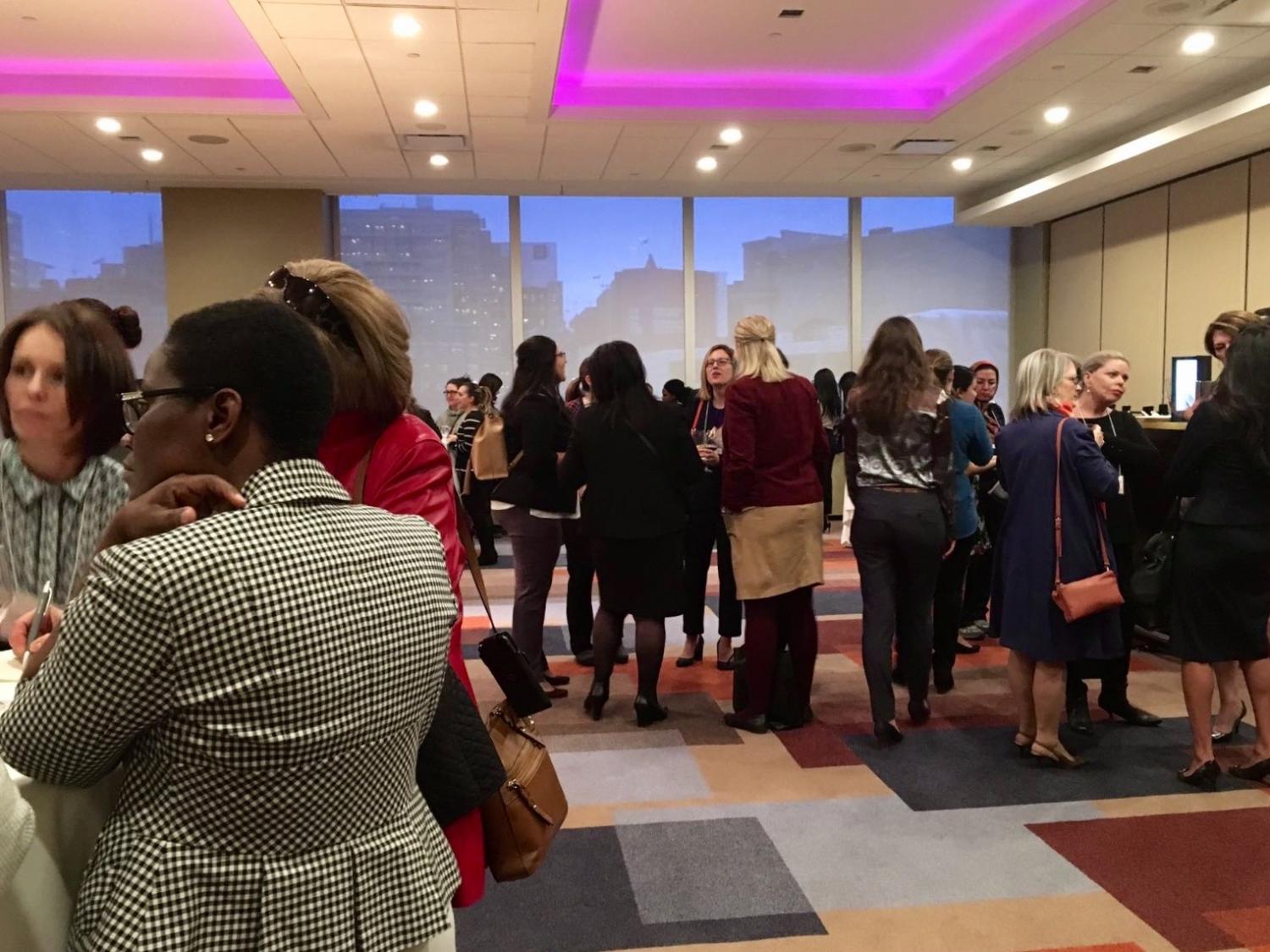
What to know about Ottawa’s Women’s Leadership Summit 2018
On Monday, March 5th, the University of Ottawa hosted an intimate event at the Westin Hotel in honour of International Women’s Day 2018. Female leaders from all over the country gathered to share their experiences and to discuss the challenges facing many women in different industries.
Every International Women’s Day, the same general theme arises: female empowerment, history, struggles, and achievements. In 2017, the IWD theme was “Women in the Changing World of Work: Planet 50-50 by 2030.” Leaders, entrepreneurs, and activists reflected on the existing gender gap and discussed the goal of making substantial headway by 2030. With such a promising and ambitious theme, it was especially disheartening when the World Economic Forum’s 2017 Global Gender Gap Report (published at the end of 2017) predicted that we are more than 200 years away from accomplishing gender parity, contesting, in effect, the feasibility of the IWD mission of 2017.
 For this year’s IWD, the theme was “Time is Now: Rural and urban activists transforming women’s lives”, widening the conversation with a more intersectional perspective, where female empowerment is placed front-and-center in order to celebrate the different means of activism that are made by and for women. Marches, speeches, lectures, panels, and fundraisers are being orchestrated across the world to further advance these grassroot initiatives which have influenced the lives of so many women.
For this year’s IWD, the theme was “Time is Now: Rural and urban activists transforming women’s lives”, widening the conversation with a more intersectional perspective, where female empowerment is placed front-and-center in order to celebrate the different means of activism that are made by and for women. Marches, speeches, lectures, panels, and fundraisers are being orchestrated across the world to further advance these grassroot initiatives which have influenced the lives of so many women.
Here are some of the women who presented at this year’s summit:
Rita Theil: President, JacKryn Holdings Inc. and Founder of the Women’s Mentor Initiative.
Nutan Behki: Vice-President, Office of the CTO, Nokia
Catherine Mavriplis: NSERC Chair of Women in Science and Engineering (Ontario)
Gina Wilson: Deputy Minister, Status of Women Canada
Dr. Steven Stein: Clinical Psychologist and Founder and CEO of Multi-Health Systems
Liz Bouthillier: National Head of Internal Sales at Franklin Templeton Investments.
Alexandra Salamis: Founding Director of the Canadian Institute for Research and Education in Human Systems and the Canadian Center for Excellence in Coaching.
Danièle Henkel: CEO of Danièle Henkel Inc.
The Keynote speaker, Danièle Henkel, gave a very personal and empowering speech about the journey she made from dire conditions in Morocco to becoming the successful CEO of her own company here in Canada. Danièle Henkel is a business woman who started a unique brand in the province of Quebec. Her company, Danièle Henkel inc., aims to reconcile Health and Business along with the installation of care facilities within the workplace, thus enforcing the concept of wellness as a new social norm in the business world. Henkel is also a lecturer, a mother of four, a writer of two successful books- “Quand l’intuition trace la route, auto-biographie”, and “Au cœur de mes valeurs”- and, most importantly, she identifies as a politically and socially engaged citizen. Henkel’s main focus is aimed towards female integration and success in male-dominated industries. As a woman who takes initiative and often uses her voice and expertise on panels around the globe, Henkel shares her experiences and strong beliefs in education with future generations of entrepreneurs.
Listening to her speech, I found Henkel’s acknowledgment of her own privilege as a woman living in the First World especially poignant. Doing so gave her audience the perspective of global inequality, and reminded us that women in Canada are in general at an advantage, and should use that advantage to help those who are marginalized: “We are very lucky in this country. Many women do not have an inch of what we do”, she said. “The best ideas come from diverse teams, so we can only expect that these diverse voices be heard and have every opportunity to succeed.”
Henkel’s speech was almost more to the point of last year’s IWD:“Women in the Changing World of Work: Planet 50-50 by 2030” given the professional lens through which she approached the subject of gender. But, by widening the discussion to include Canada’s place in global affairs, Henkel effectively located the discussion of gender not only in terms of “rural” and “urban” activism, but temporally and geographically in the here-and-now. It is during discussions such as these that awareness and change can begin to take root, and it is invigorating to see Ottawa engaging so directly in the spirit of Women’s rights, social justice, and change.









